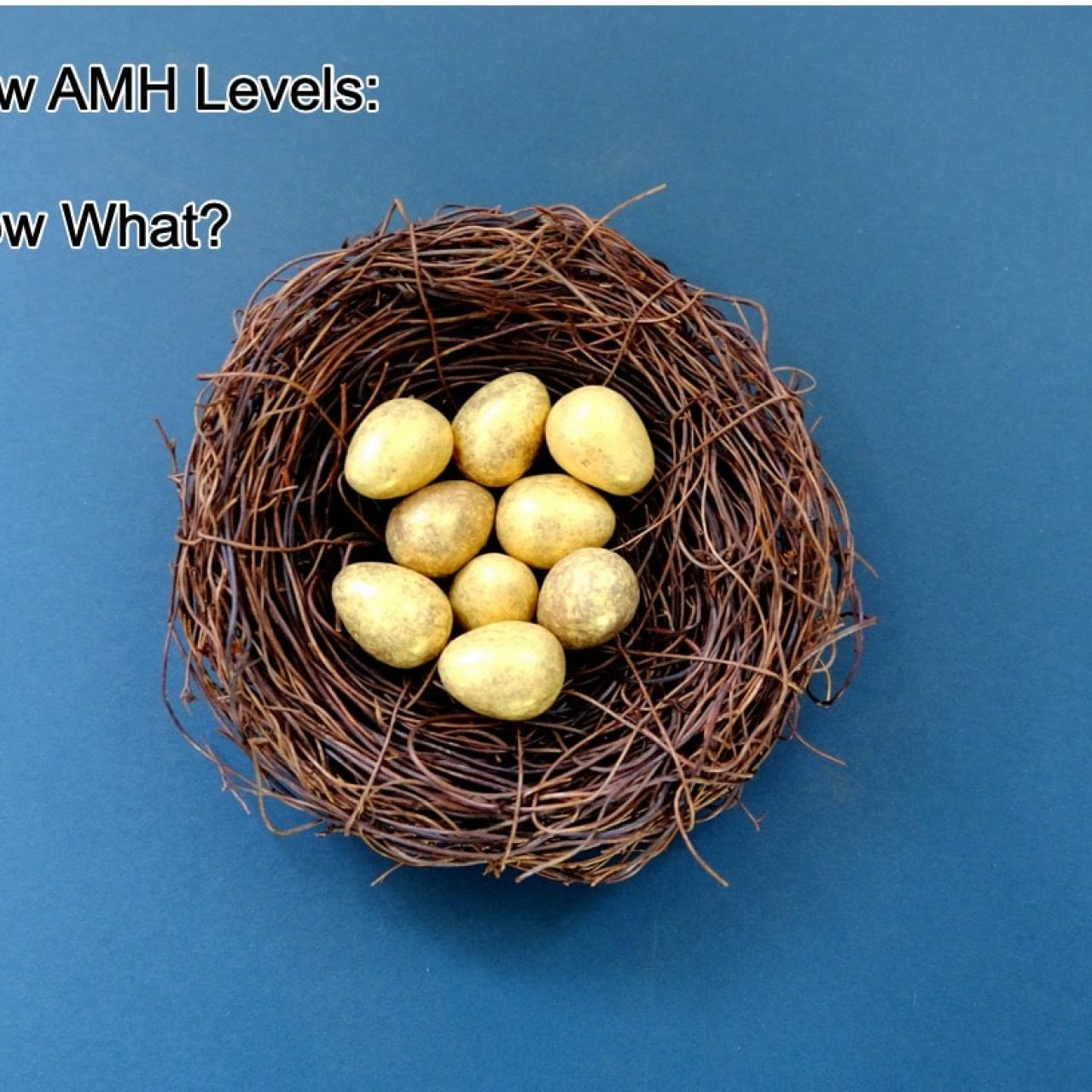After trying for a year, without success, you get to the fertility clinic only to be told that your AMH is low and you could try for a few months more to see what happens, or your best bet would be to do IVF or donor egg. You sit there thinking, what is A-M-H, and how come no one has ever told me about this.
AMH, also known as Anti-Mullerian Hormone is a hormone that is produced by the follicles that remain in your ovaries. Specifically the granulosa cells that surround the egg. This hormone gives us an idea of where you are in terms of ovarian reserve. This technically means, how many follicles you have left in your ovaries. We know as we age that the number of eggs we house will eventually start to decline.
You sit there thinking, is there anything else I can do to improve my AMH without having to go straight to IVF? Well, there are a few things you can do to help support AMH levels.
First things first, AMH relies solely on your age. The value always needs to be looked at while keeping in mind your age. Check out this article that Dr. Fiona has written on AMH and age. She has a great chart on there to compare your AMH test results to your age group.
Causes of low AMH
- Autoimmunity – autoimmune disease can be one of the causes of infertility. We do see that AMH is significantly lower in autoimmune conditions such as Lupus and Crohn’s Disease. Ruling out autoimmune conditions should be considered when AMH is low. (3)
- Hashimoto’s Thyroiditis – This is a condition where the immune system is creating antibodies towards the thyroid, specific antibodies are Anti-thyroperoxidase and Anti-thyroglobulin. This is a another form of autoimmune disease. Thyroid autoimmunity has the potential to negatively affect reproductive health, especially fertility. The prevalence of thyroid autoimmunity has been seen to be as high as 10-20% of women of reproductive age. According to researching in Taiwan, low ovarian reserve was linked to elevated levels of anti-thyroperoxidase. (1)
- Endometriosis – This condition is where the endometrial lining will travel outside of the uterus and attach to areas that surround the uterus, including the ovaries. If the endometrial tissue attaches to the ovaries, it can be detrimental to the ovarian reserve.
- Birth control pills – Another cause of low AMH could be due to use of the birth control pill. The birth control pill can suppress AMH. However, after coming off, with time the AMH can rise back up again.
- Subclinical Hypothyroidism – This is when thyroid hormones (T3 and T4) are in normal range, but TSH could be slightly elevated. This isn’t full blown hypothyroidism, however in a retrospective study reported in 2020, it was shown that subclinical hypothyroidism was associated with lower AMH concentrations. (4)
Treatments
- Diet:
When it comes to low AMH, the best thing you can do in terms of diet is to eat a nutrient dense diet. This means eating foods that are packed with vitamins and minerals such as green leafy vegetables and berries such as strawberries, blueberries, blackberries, raspberries. A study done in 2013 showed that those with Crohn’s disease had lower AMH levels, due to the fact that their digestive symptom was compromised reducing their ability to absorb nutrients. It can be suggested that the more nutrients the body can absorb the better the reproductive function including AMH. However, this has not been confirmed via research. We know in general, eating a diet that is nutrient dense can be beneficial to all couples trying to conceive. (5)
- Supplementation:
- CoQ10: This is known as one of the most important antioxidants for fertility. The ovary is one of the areas in the body with the highest amount of CoQ10. It helps to support egg quality and ultimately the ovary.
- Circulatory stimulants: The key to supporting AMH is to protect the ovary as much as possible. Circulatory stimulants can help to improve circulation to the ovaries, especially if there is inflammation present. Circulatory stimulates include polyphenols such as grapeseed, pine bark and EGCG
- Vitamin D: Research has shown that Vitamin D has a positive effect on women of reproductive age including the regulation of AMH levels. It has been shown that an acute rise in Vitamin D resulted in a rise in AMH levels. Always get your Vitamin D tested and take the appropriate dose for your body. (2)
- DHEA: This is a type of testosterone that comes from the adrenal glands in our bodies. Often times we see lower levels of DHEA and testosterone when AMH is low or there is premature ovarian insufficiency. It has been shown that increasing low DHEA can result in increasing the number and quality of eggs retrieved in IVF. However, DHEA is not for everyone, always consult your doctor before taking DHEA.
Key Points:
- AMH is referred to Anti-Mullerian Hormone and gives us an indication of ovarian reserve. Remember, this value is always based on age.
- Causes of low AMH include autoimmune disease, Hashimoto’s Thyroiditis, long term birth control use, Subclinical Hypothyroidism.
- Treatments of low AMH include whole food diet, antioxidants, Vitamin D and DHEA.
Next Steps:
- Our Naturopathic Doctors can help you to answer any questions relating low AMH.
- Check out our blog page, we have an extensive library on articles related to fertility.





